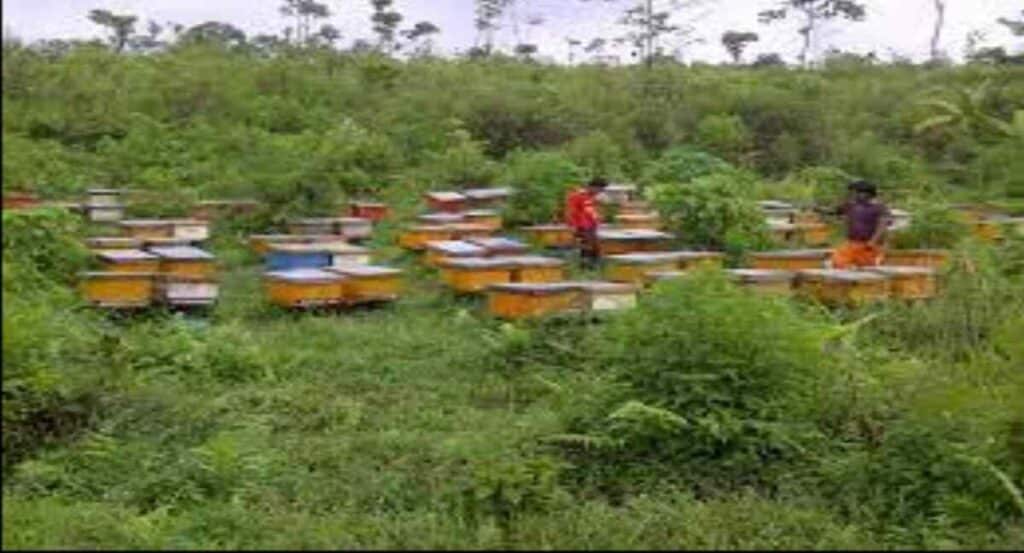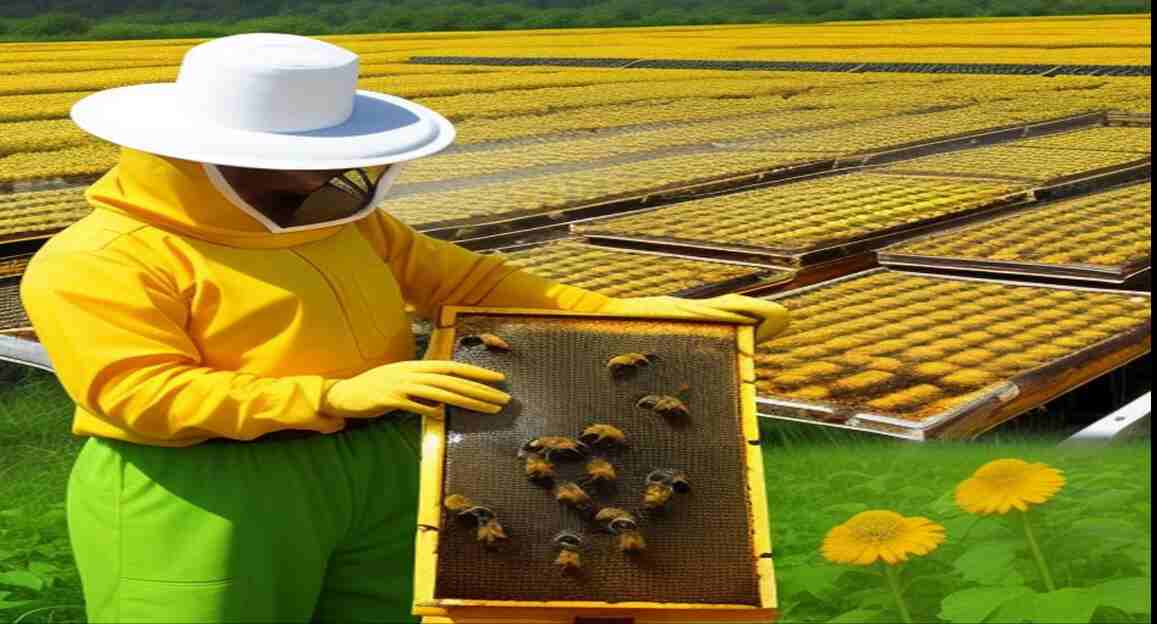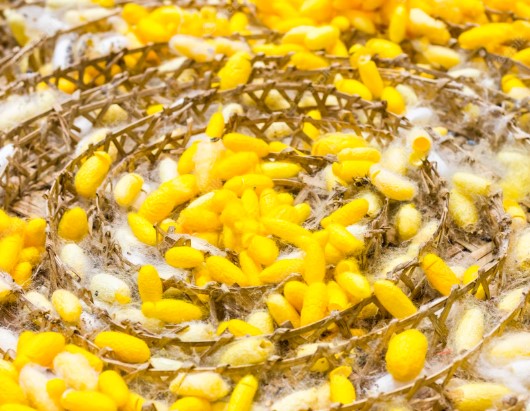Bee Keeping: The beekeeping industry is the practice of raising bees, primarily to collect honey and other hive products. Honey bees are the most common type of bee kept by beekeepers, but there are also other species that can be raised for honey production, such as bumblebees and stingless bees.
Bee keeping industry history in India
The history of beekeeping in India is a fascinating story of innovation and adaptation. Here’s a glimpse into its evolution:
The first documented attempts at beekeeping with movable frame hives occurred in pre-partition Bengal and Punjab around the 1880s.
Birth of Modern Beekeeping (1910s):
- The year 1910 marks a turning point. Reverend Newton in South India designed a special hive suited for the native Apis cerana bee, the “Newton Hive” [2].
- This innovation, coupled with training programs for rural communities (1911-17), laid the foundation for commercial beekeeping in India.
Growth and Institutionalization (1920s-1940s):
- Beekeeping activities flourished in Travancore, Mysore, Madras, Punjab, and Uttar Pradesh throughout the 1920s and 1930s [2].
- The Royal Commission on Agriculture (1928) recognized its potential as a cottage industry, leading to the formation of the All India Beekeepers’ Association (AIBA) in 1938-39 [2]. This association started a beekeeping journal to disseminate knowledge.
- The Indian Council of Agricultural Research (ICAR) initiated research projects in the 1940s, and the first Beekeeping Research Station was established in Punjab in 1945 [2].
Post-Independence Growth (1947 onwards):
- Mahatma Gandhi championed beekeeping as part of his rural development vision [2].
- Initially, the All India Khadi and Village Industries Board (later KVIC) played a key role in promoting beekeeping. The Central Bee Research and Training Institute was established by KVIC in Pune in 1962 [2].
- Collaboration with institutions like YMCA and Christian missionaries helped promote beekeeping alongside rubber plantations in Kerala and Tamil Nadu [2].
Recent Developments:
Government initiatives like the “Sweet Revolution” program and the Madhukranti portal continue to support beekeepers, enhance honey production, and improve data collection within the industry. ‘Bee keeping’

India’s beekeeping history showcases a continuous effort to adapt beekeeping practices to the local bee species and encourage its growth as a sustainable source of income and a vital contributor to agriculture through pollination. ‘Bee keeping’
Marketing Trends and Honey Production In India
- The Indian apiculture market attained a value of almost INR 18,836.2 million in the year 2020. The industry is further expected to grow at a CAGR of 12.4% over the forecast period of 2021–2026 to reach a value of INR 37,235.9 million by 2026.
- A FactMR study predicts honey market to grow at a positive CAGR of 5.1% during the forecast period (2019–2029). Honey continues to witness augmented demand for healthy food applications across the globe. ‘Bee keeping’
- The consumption of apiculture products like honey is increasing in the Asia-pacific region due to the health benefits associated with honey and its by-product
- The India honey market reached a value of about INR 17.29 billion in 2020. The market is further expected to grow at a CAGR of about 10% between 2021 and 2026 to reach a value of nearly INR 30.6 billion by 2026.
According to National Bee Board or the Ministry of Agriculture and Farmers Welfare the production of Honey in last five years in India are given in table.
| Year | Honey Production (Metric Tonnes) |
| 2016-17 | 94,500 |
| 2017-18 | 1,05,000 |
| 2018-19 | 1,20,000 |
| 2019-20 | 1,25,000 |
| 2020-21 | 1,25,000 |
Importance of beekeeping:
Beekeeping is an important industry that provides a number of benefits, including:
Honey production: Honey is a delicious and nutritious food that can be enjoyed by people of all ages. ‘Bee keeping’
Pollination: Bees play a vital role in pollination, which is the transfer of pollen between plants. This is essential for the reproduction of many plants, including fruits, vegetables, and nuts.
Economic benefits: Beekeeping can be a profitable business for beekeepers. Honey and other hive products can be sold to consumers and businesses.
Environmental benefits: Bees play an important role in the ecosystem. By keeping bees, beekeepers help to ensure the health of bee populations and the environment. ‘Bee keeping’
Challenges facing the beekeeping industry:
The beekeeping industry faces a number of challenges, including:
Colony Collapse Disorder (CCD): CCD is a mysterious condition that is causing bee colonies to collapse. The cause of CCD is not fully understood, but it is believed to be a combination of factors, including pesticides, disease, and malnutrition. ‘Bee keeping’
Habitat loss: The loss of habitat for bees is a major threat to the beekeeping industry. Bees need access to flowers to collect pollen and nectar. However, habitat loss due to deforestation and urbanization is making it difficult for bees to find the food they need.
Pesticides: Pesticides can harm bees, both directly and indirectly. Direct exposure to pesticides can kill bees. Indirectly, pesticides can harm the flowers that bees need to collect pollen and nectar.
The future of beekeeping:
Despite the challenges it faces, the beekeeping industry is an important and growing sector of the agricultural economy. As the importance of bees for pollination becomes increasingly recognized, the beekeeping industry is likely to continue to grow in the years to come.
The beekeeping industry is an important part of our food system and our environment. By supporting beekeepers and taking steps to protect bees, we can help to ensure the continued health of this vital industry. ‘Bee keeping’
The beekeeping industry in India has witnessed recent efforts to promote and develop this ancient practice. With a focus on sustainability and economic growth, beekeeping has gained significant attention in India. This blog post explores the current state of the beekeeping industry, highlighting the initiatives taken to support this sector and the potential benefits it offers. Whether you are a beekeeping enthusiast or simply interested in understanding the impact of beekeeping on the Indian economy, this article provides valuable insights into the growing importance of beekeeping in India. ‘Bee keeping’



